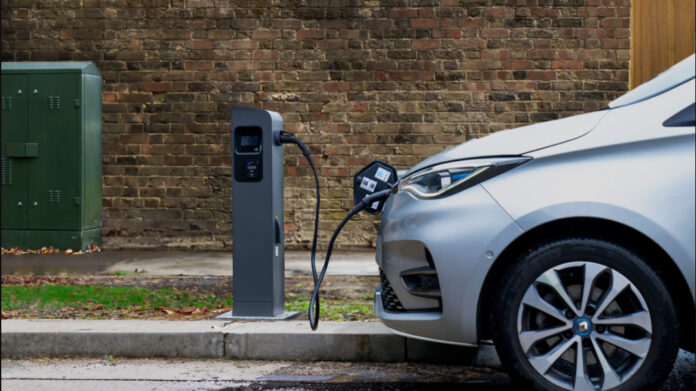UK-based BT Group is looking to repurpose old street cabinets, traditionally used to store broadband and phone cabling, as electric vehicle (EV) charging stations. The firm’s innovation startup unit, Etc., has announced a series of pilots, starting in Scotland, to enable street cabinets to share renewable energy to a charge point. It suggests up to 60,000 street cabinets could be used in this way, more than doubling the UK’s existing EV charging infrastructure and extending the life of existing road infrastructure as fibre rollout makes street cabinets redundant.
BT is showing the solution at the Consumer Electronics Show (CES) in Las Vegas this week – where it has received recognition (‘Innovation Honoree’) for design and engineering. The UK government wants to increase the number of charge points from 53,000 today to 300,000 by 2035. BT has earmarked 60,000 near end-of-life cabinets as candidate stations for EV charging. It has run a consumer poll that says 60 percent of people think the UK’s EV charging infrastructure is inadequate, with 78 percent of drivers citing it as a barrier to upgrade to EVs.
The ETC. solution works by retrofitting cabinets with a device that enables renewable energy to be shared to a charge point alongside existing broadband services, with no need to create a new power connection. EV charging can be deployed in both redundant and operational cabinets, depending on available space and power. Additional charge points can be added as cabinets are retired. BT says more than a third (38 percent) of cabinets could already have an EV already if charging were less of an issue – which its new device resolves.
The trials, starting in East Lothian in Scotland, and expanding over “coming months”, will scope a range of different technical, commercial, and operational considerations, said BT, including questions around cabinet location, power availability, customer accessibility, council engagement and permissions, public and private funding options, customer experience, plus various engineering considerations. BT is also to look at operational procedures, around whether a dedicated BT Group venture manages the infrastructure, or it works in partnership with others.
BT noted the viability of the solution for other markets, citing a lack of EV infrastructure in the US, also, where “only” 160,000 public chargers serve 2.4 million electric vehicles.
Tom Guy, chief executive at Etc., said: “Our new charging solution is a huge step in bringing EV charging kerbside and exploring how we can address key barriers customers are currently facing. Working closely with local councils in Scotland and more widely across the UK, we are at a critical stage of our journey in tackling a very real customer problem that sits at the heart of our wider purpose to connect for good. This is a key step in our mission to build products and services right now that work for the future, with positive transformation at the heart.”

